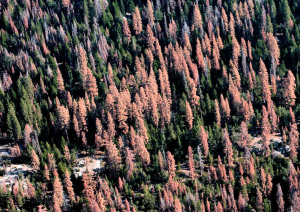
Arial shot of a forest with trees dying from pests, pathogens, and/or climate change. Photo Credit Duke.edu
As scientists with expertise in forest and fire ecology and climate change in California, we feel compelled to expose the many false claims from the biomass industry in your May 19 article (“In California, A Push Grows to Turn Dead Trees into Biomass Energy”). These claims fly in the face of the best available science. Creating effective forest, fire, and climate policy depends on getting the facts right.
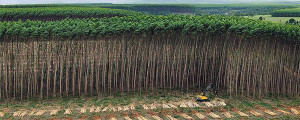
Harvesting the wood… NOT sustainable – NOT Green Photo Credit: World Rainforest Movement
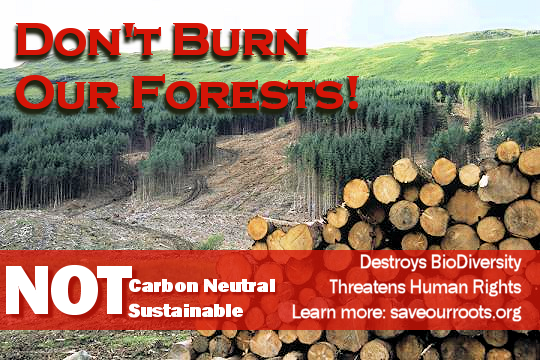
Please sign this petition from Friends of the Earth…. Share this on social media – talk to your family, friends, community ….
 Right now, Congress is trying to pass an Energy Bill that’s full of giveaways to the timber industry. It would tell Environmental Protection Agency scientists to pretend that burning trees for fuel doesn’t hurt the climate. The bill could advance to conference any day now, but we can still block it. We need you to tell your Senators to stand up for our forests, not the timber industry!
Right now, Congress is trying to pass an Energy Bill that’s full of giveaways to the timber industry. It would tell Environmental Protection Agency scientists to pretend that burning trees for fuel doesn’t hurt the climate. The bill could advance to conference any day now, but we can still block it. We need you to tell your Senators to stand up for our forests, not the timber industry!
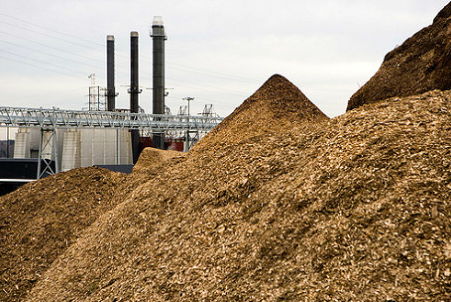
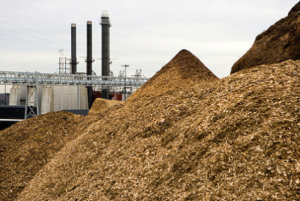 Biofuels consumed today are usually ethanol made from the sugar in sugar cane (or sugar beet) or they may be made from starch in grains. In the US this is mostly corn starch. Alternatively, biodiesel may be made from plant oils such as soybean or canola oil. Cellulosic biofuels, on the other hand, are biofuels made from crop residues (e.g. corn stover), wood, or whole plants, especially grasses (e.g. switchgrass). Cellulosic biofuels include cellulosic ethanol (made by isolating, breaking down and then fermenting the complex sugars in the cell walls of plants), as well as ‘drop in biofuels’. These biofuels are chemically almost identical to fossil-fuel based kerosene, diesel or gasoline.
Biofuels consumed today are usually ethanol made from the sugar in sugar cane (or sugar beet) or they may be made from starch in grains. In the US this is mostly corn starch. Alternatively, biodiesel may be made from plant oils such as soybean or canola oil. Cellulosic biofuels, on the other hand, are biofuels made from crop residues (e.g. corn stover), wood, or whole plants, especially grasses (e.g. switchgrass). Cellulosic biofuels include cellulosic ethanol (made by isolating, breaking down and then fermenting the complex sugars in the cell walls of plants), as well as ‘drop in biofuels’. These biofuels are chemically almost identical to fossil-fuel based kerosene, diesel or gasoline.

 A new study out of the Geos Institute in Ashland, Oregon concludes that selectively logging or “thinning” forests for bioenergy can increase the amount of carbon dioxide in the atmosphere and exacerbate climate change. The study, “Thinning Combined With Biomass Energy Production May Increase, Rather Than Reduce, Greenhouse Gas Emissions,” by D.A. DellaSala and M. Koopman, challenges bioenergy and timber industry assertions that logging forests will aid in the fight against climate change.
A new study out of the Geos Institute in Ashland, Oregon concludes that selectively logging or “thinning” forests for bioenergy can increase the amount of carbon dioxide in the atmosphere and exacerbate climate change. The study, “Thinning Combined With Biomass Energy Production May Increase, Rather Than Reduce, Greenhouse Gas Emissions,” by D.A. DellaSala and M. Koopman, challenges bioenergy and timber industry assertions that logging forests will aid in the fight against climate change.
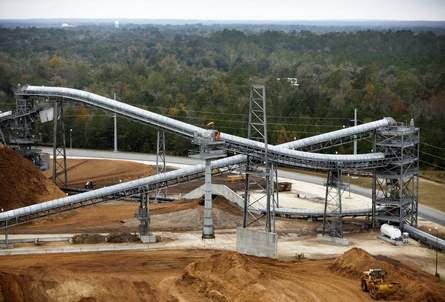
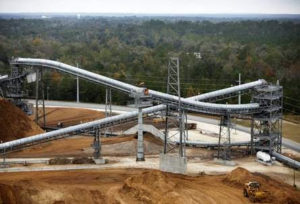 A two-week-long, multi-million-dollar courtroom battle ended last Thursday with closing arguments by lawyers for the Boston-based, internationally owned entity known as Gainesville Renewable Energy Center and lawyers for a more-than-three-decades-old, family-owned Gainesville biomass recycling business, Wood Resource Recovery. While the two sides await a judgment by the court, not expected until June, GREC is proceeding apace with new and separate litigation with a different opponent and different warriors. That second legal battle, initiated by GREC in March against the city of Gainesville and Gainesville Regional Utilities, is being fought by a different group of GREC lawyers. This new legal team, based in Boston, wants to force GRU to make millions of dollars in payments above and beyond the $60 million to $70 million annually GRU is already paying GREC — paying not for electricity, but for the right to purchase GREC electricity in the event GREC ever sells its electricity at a price equal to or less than the market rate.
A two-week-long, multi-million-dollar courtroom battle ended last Thursday with closing arguments by lawyers for the Boston-based, internationally owned entity known as Gainesville Renewable Energy Center and lawyers for a more-than-three-decades-old, family-owned Gainesville biomass recycling business, Wood Resource Recovery. While the two sides await a judgment by the court, not expected until June, GREC is proceeding apace with new and separate litigation with a different opponent and different warriors. That second legal battle, initiated by GREC in March against the city of Gainesville and Gainesville Regional Utilities, is being fought by a different group of GREC lawyers. This new legal team, based in Boston, wants to force GRU to make millions of dollars in payments above and beyond the $60 million to $70 million annually GRU is already paying GREC — paying not for electricity, but for the right to purchase GREC electricity in the event GREC ever sells its electricity at a price equal to or less than the market rate.










